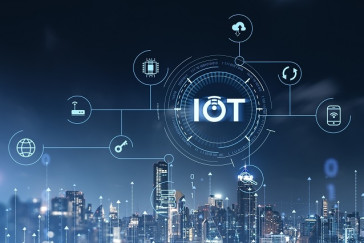Ostensible Oligopoly
Like every multinational corporation, Intel faces its own barrage of pesky antitrust lawsuits periodically. Yes, every so often, some government agency, would be competitor, or overzealous Mr. Smith wannabe wakes up one morning and thinks, "Gee, how come Intel is the only manufacturer of computer processors?" and decides to embark on an uphill battle against THE chip company. Despite these numerous legal challenges, Intel insists that it's definitely not a monopoly. No sir, the fact that every single PC on the market, even Macs, run on its microprocessors is merely an indication of their success. And as everyone knows, success is something you don't mess with, much like the state of Texas.
Too bad the FTC wasn't buying it because today the tech tycoons agreed to a settlement of sorts with the regulatory agency. While Intel doesn't have to pay any fines or actually admit to any wrongdoing, the terms will significantly alter the way they does business[1]. Intel has been accused of engaging in a plethora of unethical business practices, including bribery. In fact, the suit in question alleges that they greased Dell and HP's palms by offering a series of rewards and punishments for obedience, in a manner similar to the technique used to train Pavlov's dog. Intel also builds stuff that only works well with their own products, effectively placing rivals at an unfair disadvantage. Rumor has it Intel manipulates outstanding licensing agreements to box out the opposition as well. None of these shady tactics are kosher under the new regulations, although though they were never technically permissible to begin with. So the bottom line is that this settlement simply forces Intel to abide by existing statutes. That's about it, really.
For those who question the validity of Intel's preeminence, I challenge you to find me a computer inside of an average, run-of-the-mill retail outlet like Best Buy, Staples, Target, or whatever, that runs on a non-Intel processor. No really, I dare you. It goes without saying that custom built PCs built by geeks to run on Linux don't count. To illustrate my point, let's take a gander at some stores online inventories and try to find a processor, made by anyone else. Hmmm....Best Buy's outlet store has a couple of refurbished HP computers (3 to be exact) that run on AMDs. Remember, Intel got butt hurt over HP's decision to briefly work with AMD, and HP has since ceased to do so in their later models. Staples' website offers 4 products with AMDs, but one of them is out of stock. Target carries 3 low end laptops and 2 mid-range versions that have AMDs, none of which are available in stores. For comparison purposes, they have 44 Intel products and several of them are sitting on their store shelves. Fry's website has 11 pages worth of Intel items whereas AMD stuff takes up 4.
Ok, Intel doesn't have the market completely cornered. It seems as though consumers sort of have a choice between two processors, as long as they're open to buying certain brands. And many of the major manufacturers are slowly phasing AMD out. For example, I just searched Dell's website for AMD processor and got a mixed bag of results. When I clicked on their Inspiron Zino HD, which is powered by an AMD, there's a box at the top of the screen that promises to help me pick the right processor for me. Interestingly enough, the only options presented to me are all made by, you guessed it, Intel. There you have it folks, the illusion of consumer choice. Let's check back in about a year and see if anything's changed.
[1] Question: in light of the Citizens United ruling, is it grammatically incorrect to refer to a corporation using a plural pronoun?
This content was created by AI





